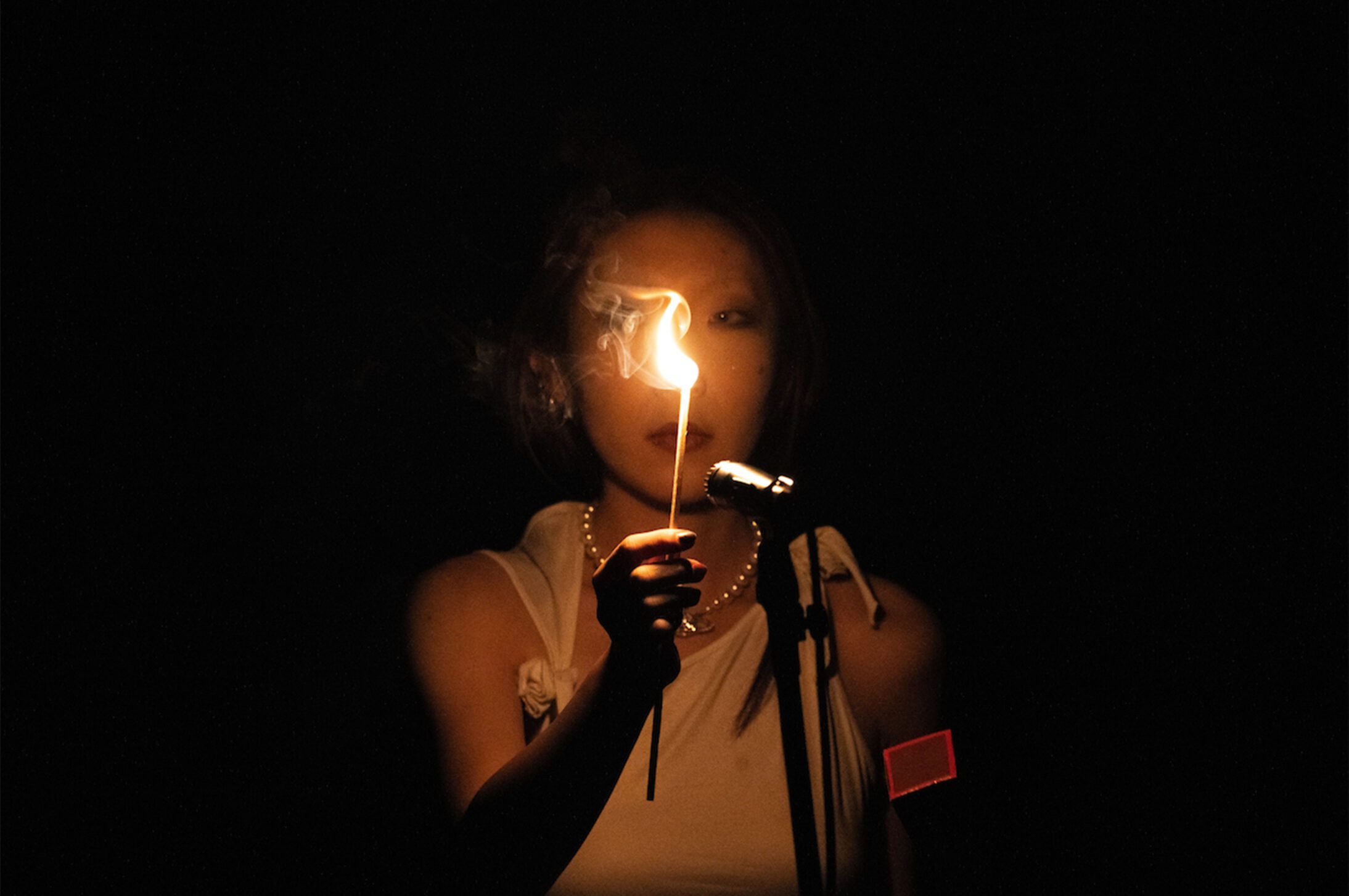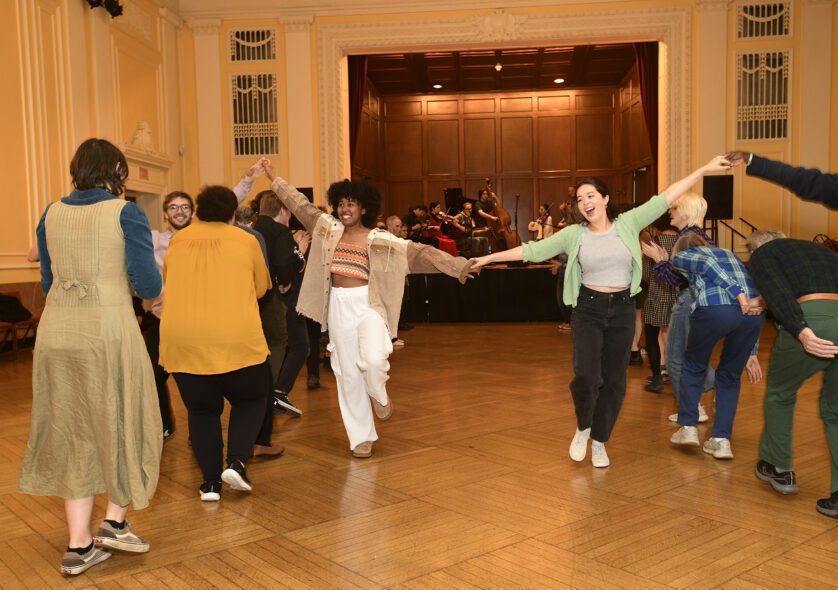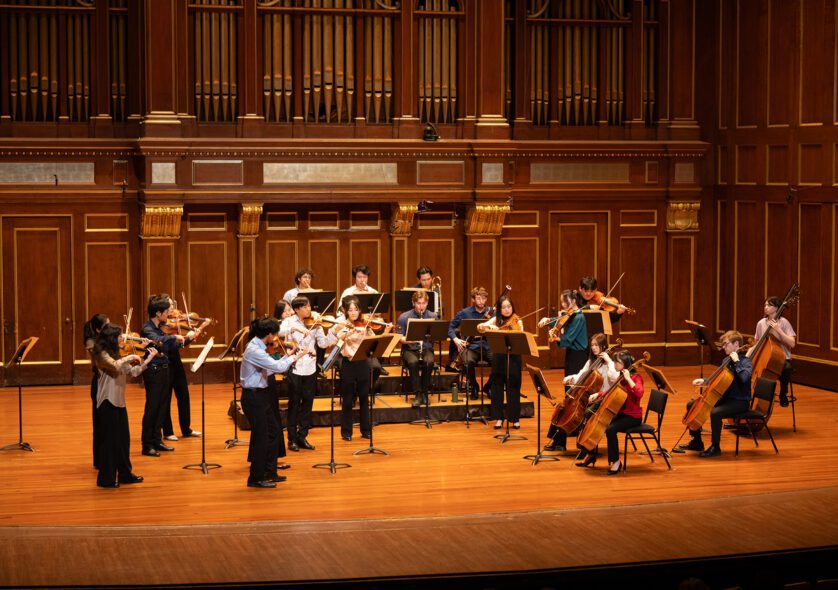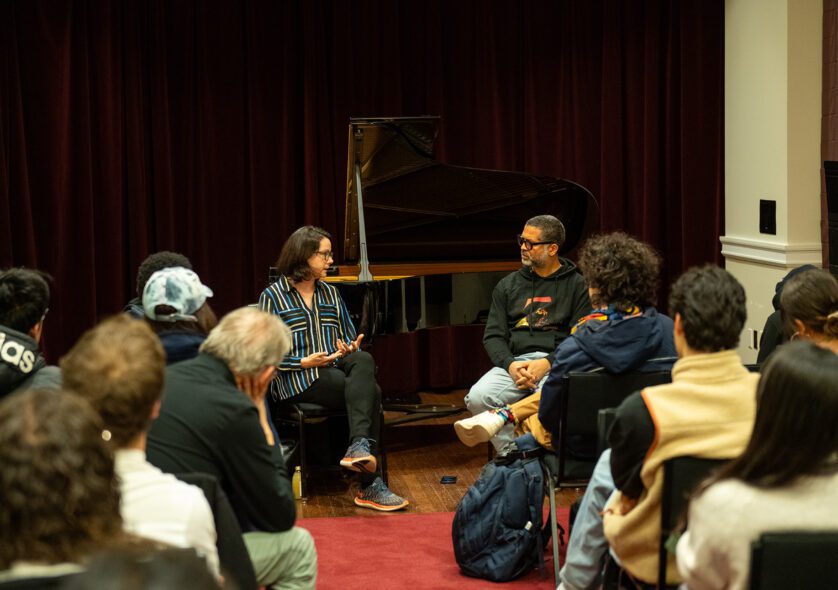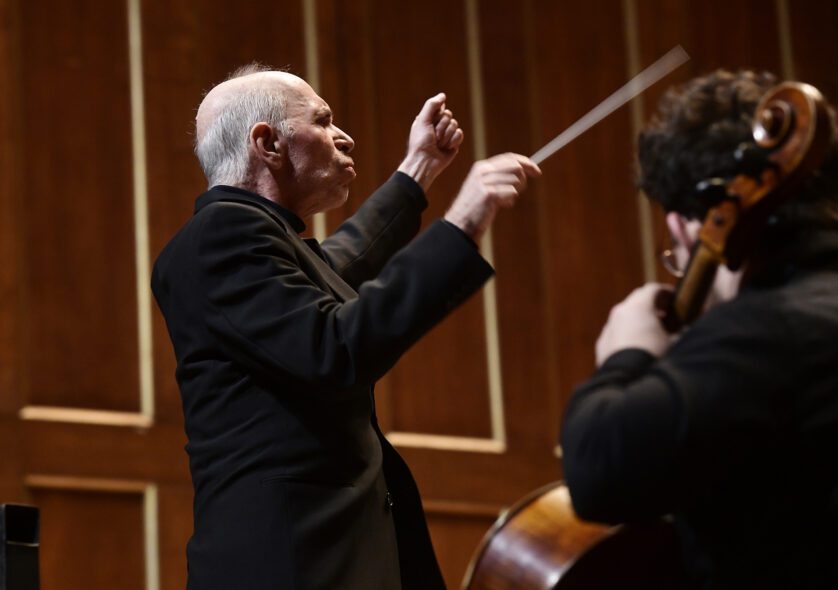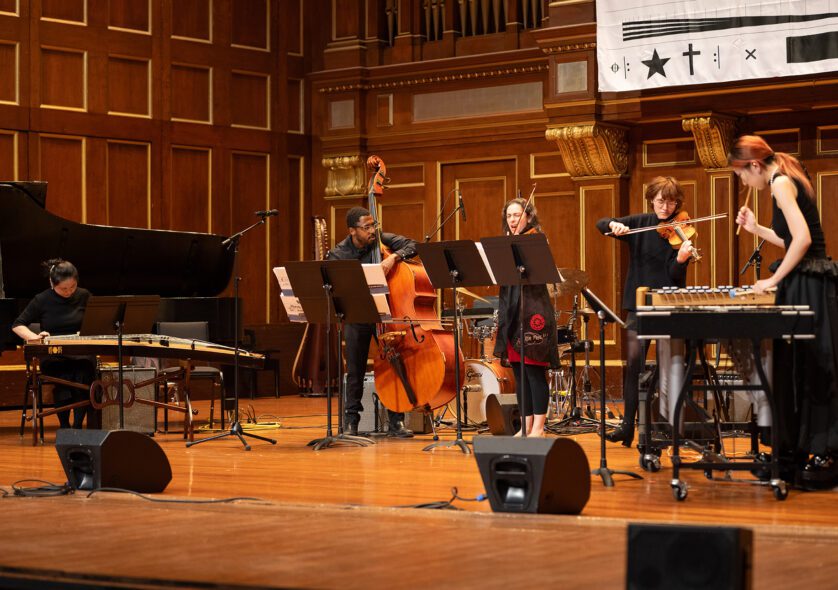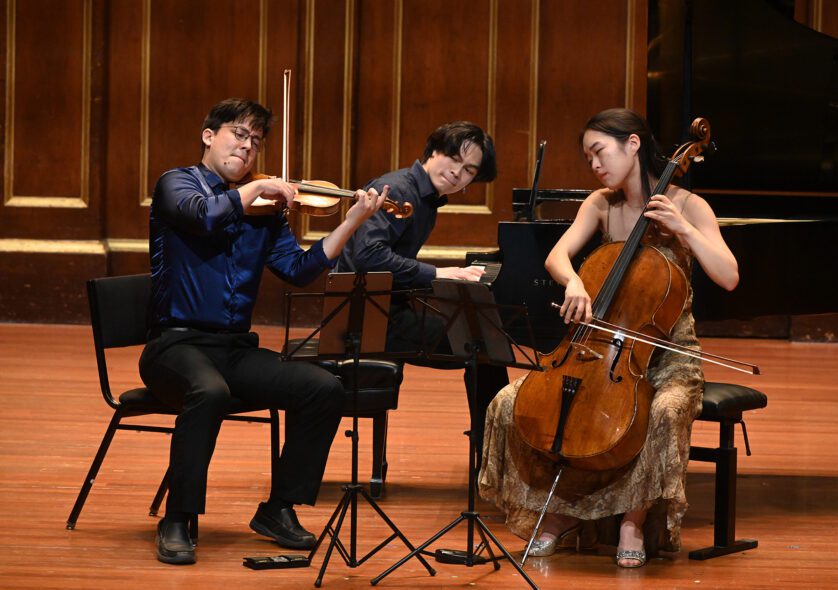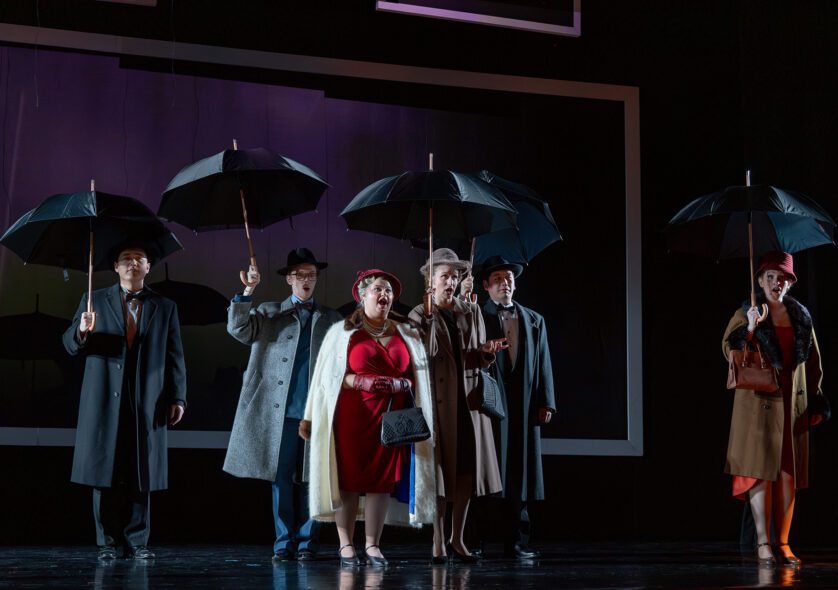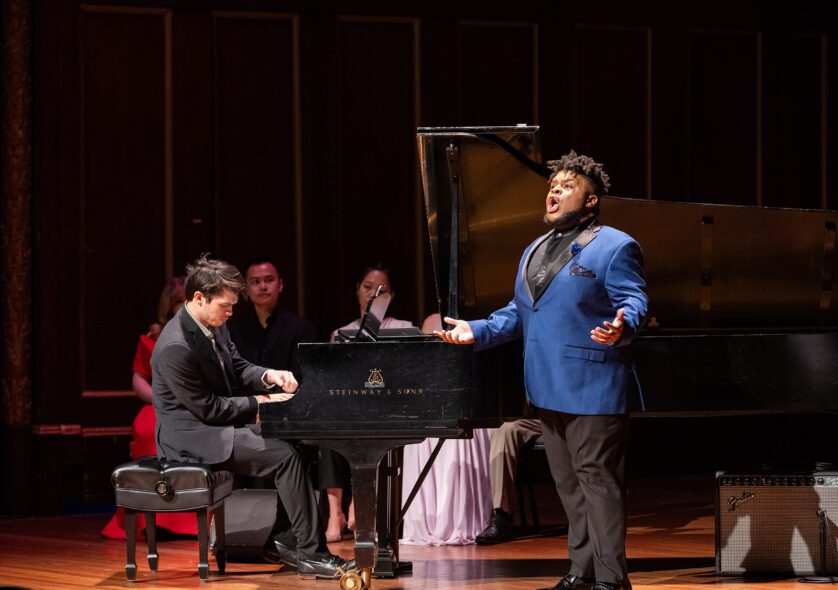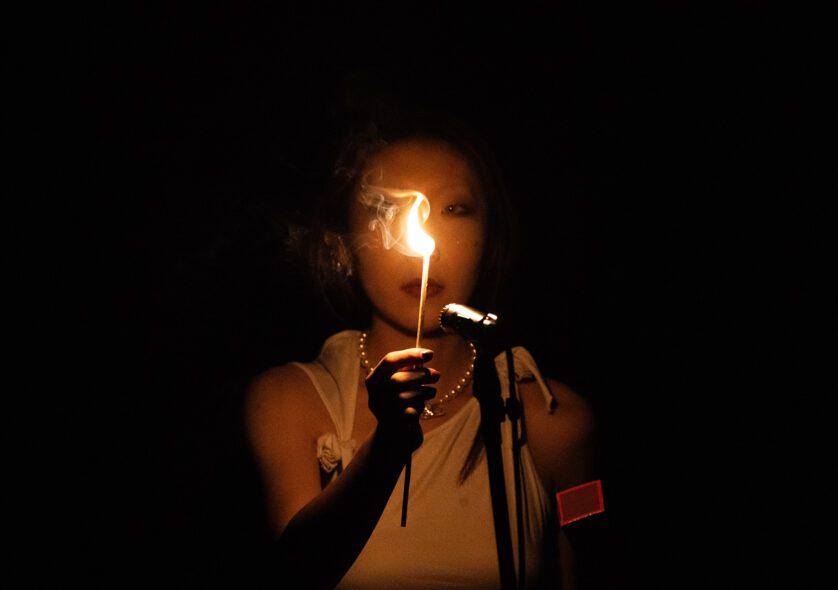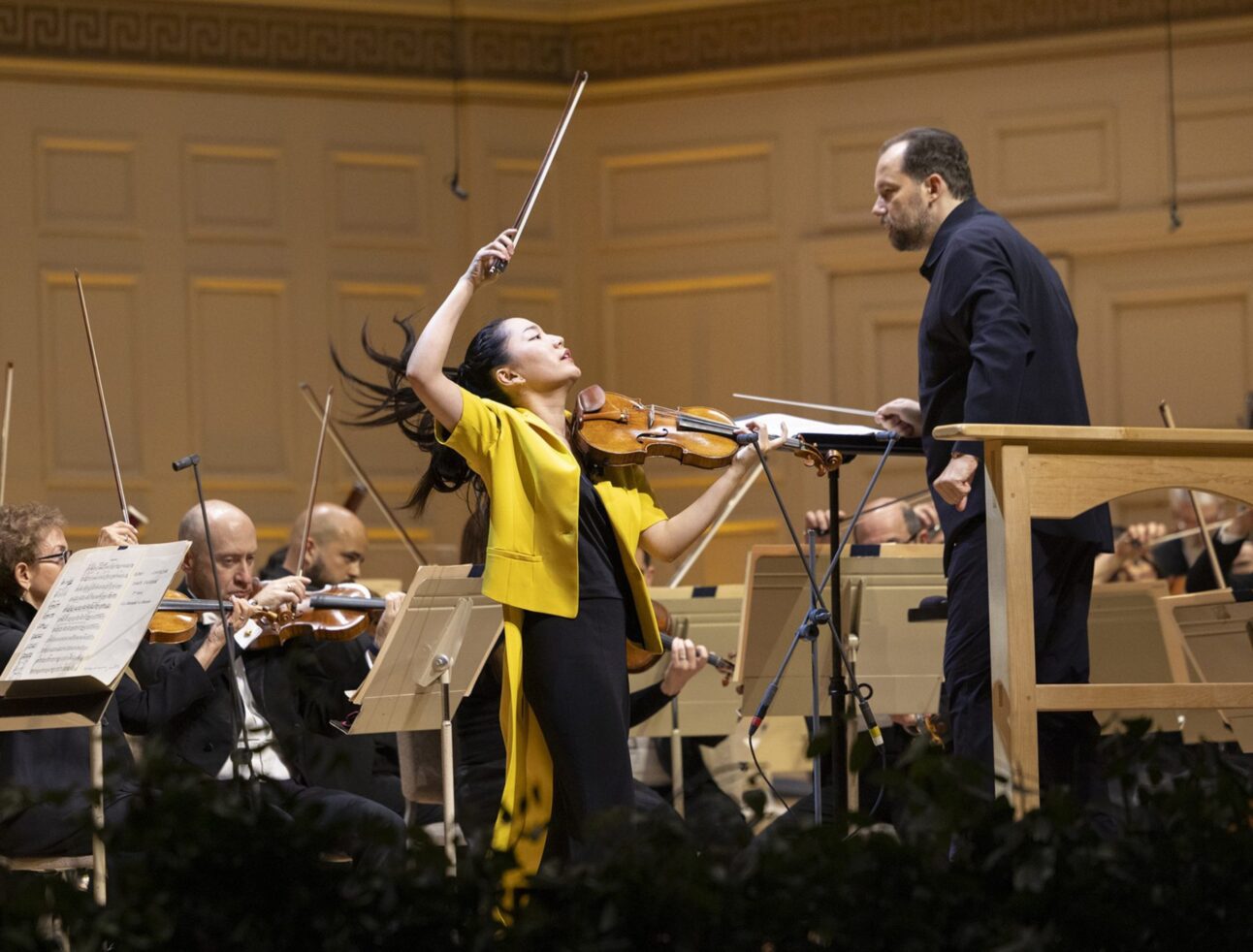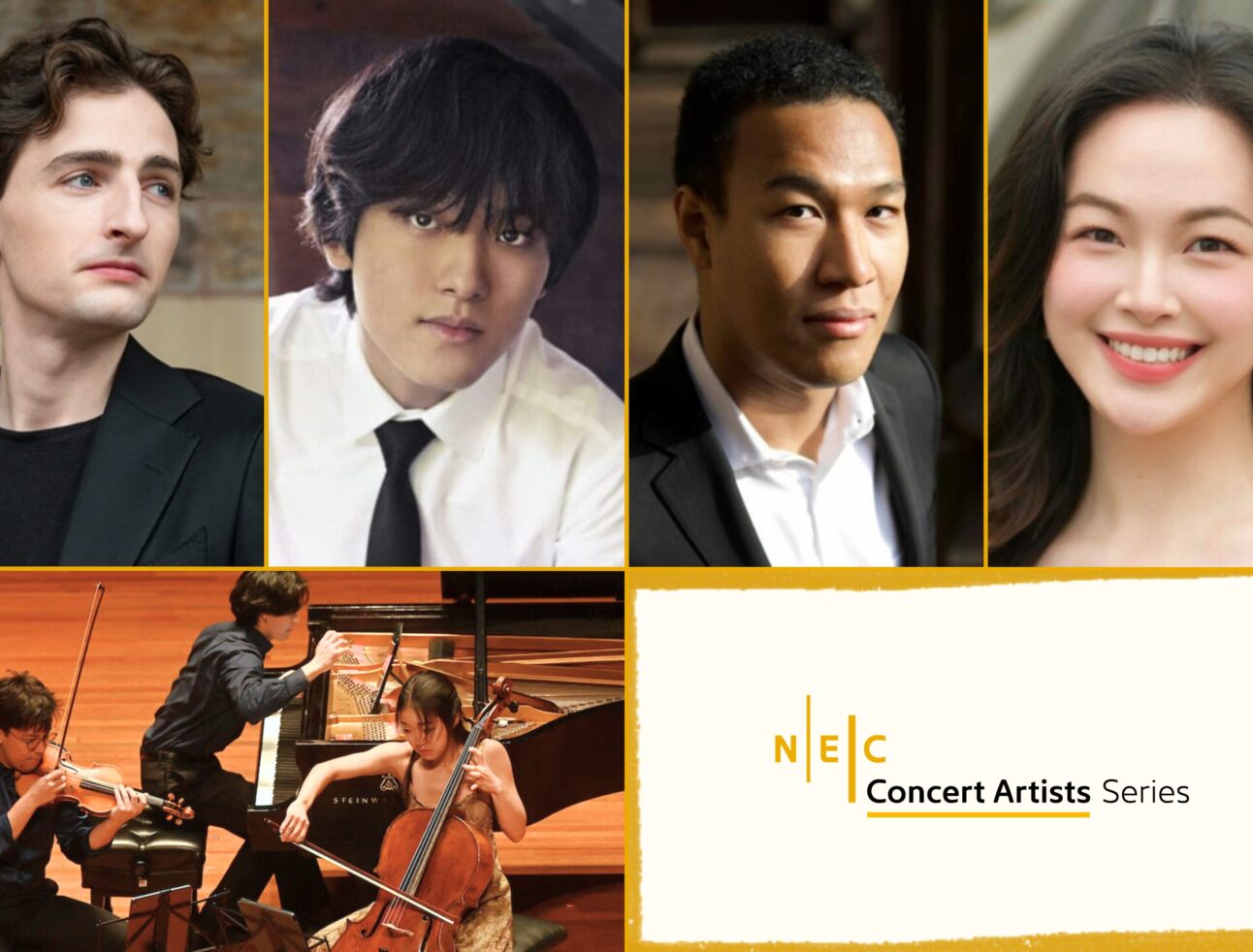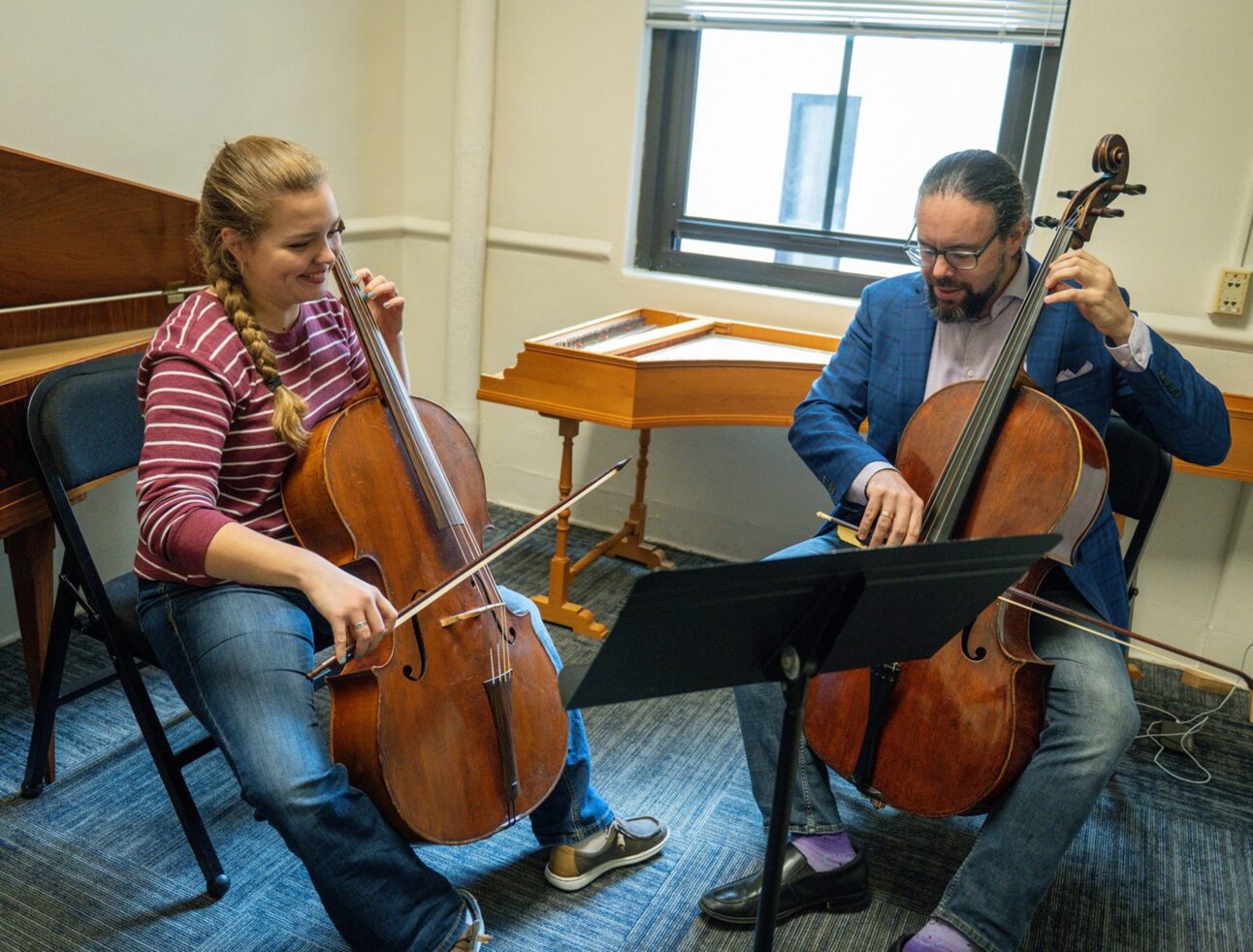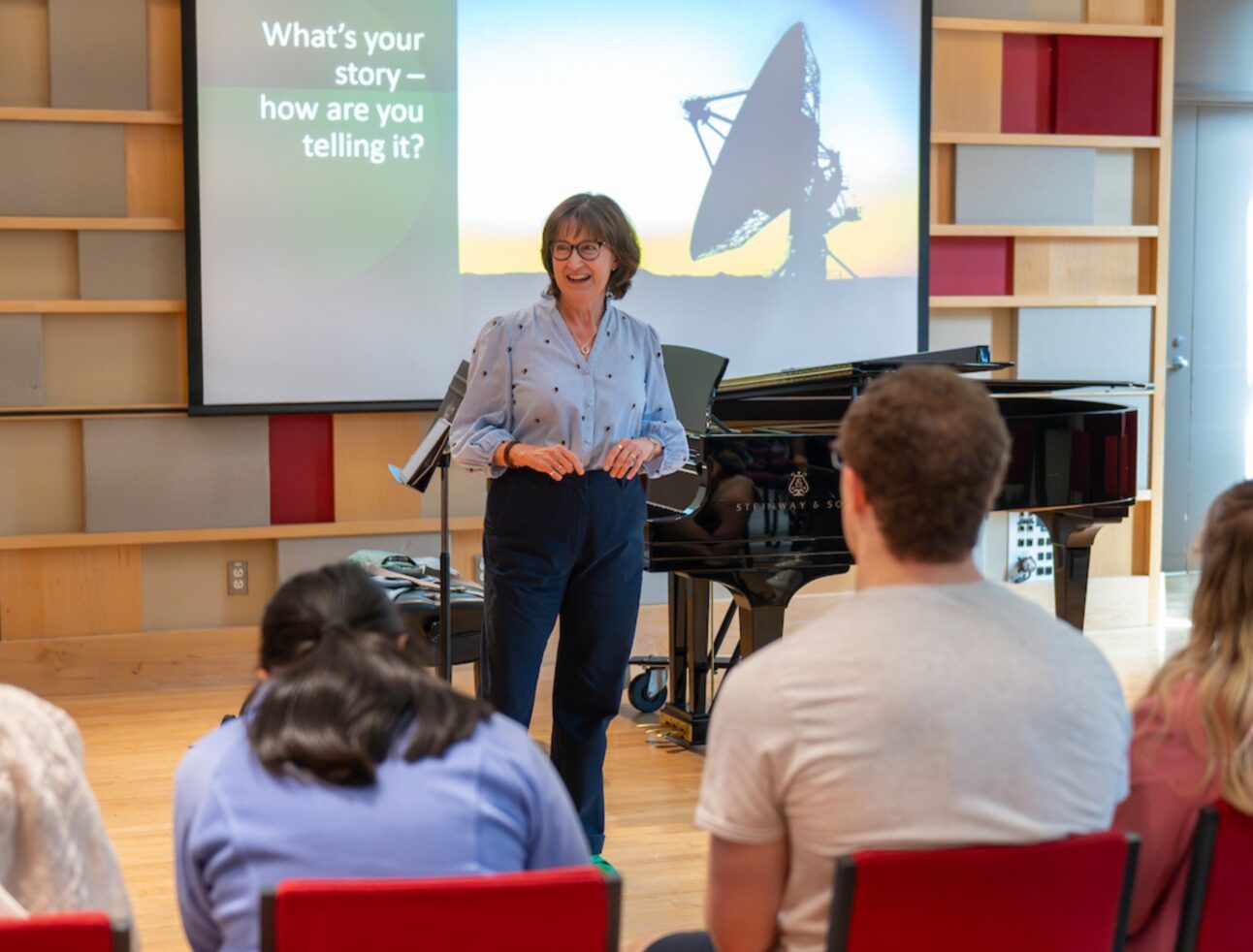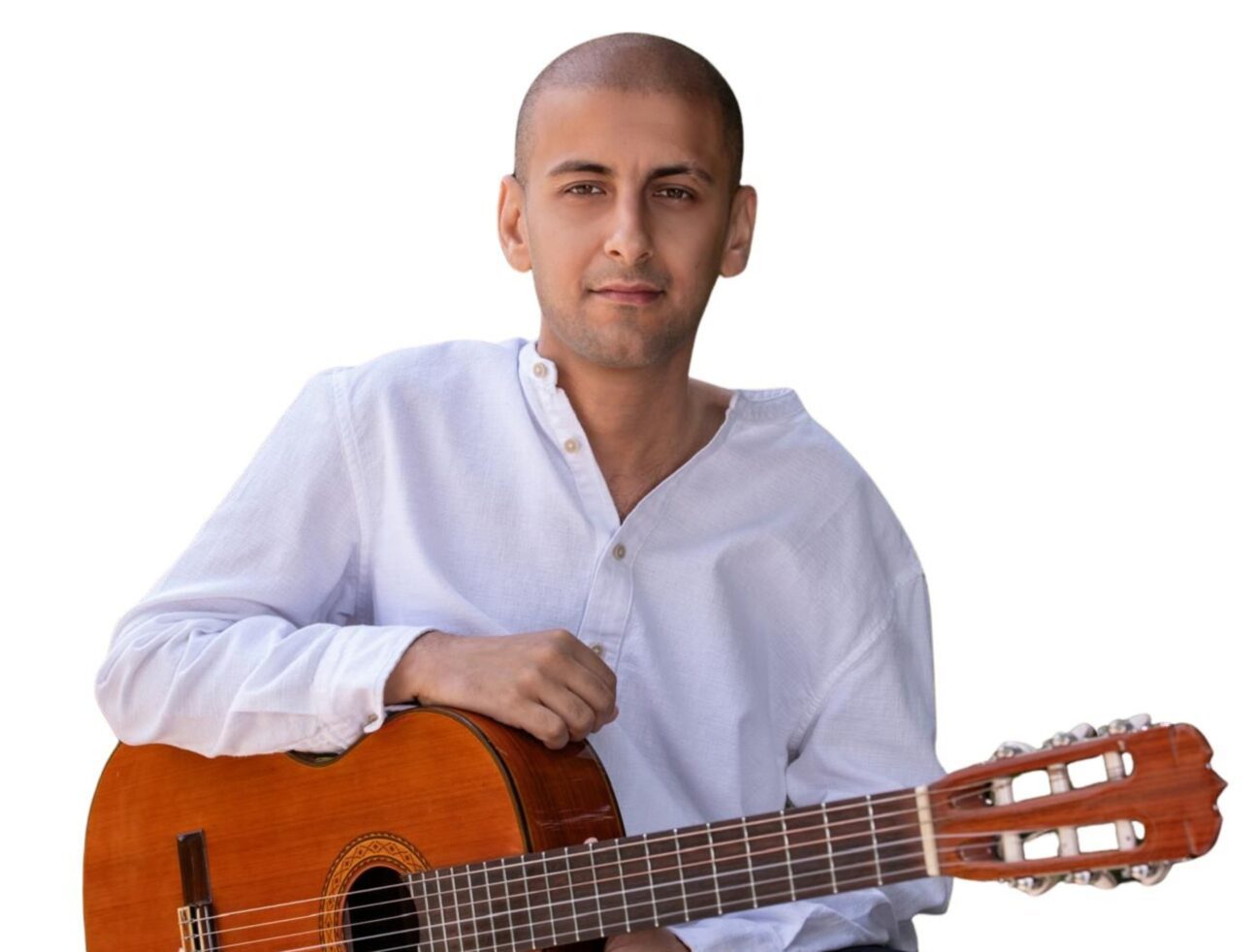In exploring American innovation, this year’s NEC Festival celebrated the Conservatory’s own richness of tradition. “NEC is a place that’s bubbling with innovation all the time,” faculty member Eden MacAdam-Somer said, reflecting on the weeklong program that honored the memory of late faculty member John Heiss, who organized previous iterations of the festival, and showcased the music of Charles Ives and Ruth Crawford Seeger, among many others.
This year’s NEC Festival, MacAdam-Somer said, told the story of the importance of taking time each year to ignite a spark. The festival embraced the spirit cultivated by figures like Gunther Schuller, who “was an incredibly forward-thinking musician,” noted MacAdam-Somer, who chairs the Faculty Senate Steering Committee, which organized the festival, and is co-chair of the Contemporary Musical Arts department. “Thinking about music and art and its place in the world — he thought it was important to think about it all, and he brought that energy to NEC.” Similarly, Heiss inspired a broader vision of the Conservatory, encouraging engagement beyond the performance stage. Reflecting this ethos, the festival eagerly included contributions from all of NEC’s departments.
Ives, whose music was performed in concerts presented by NEC’s Piano Department this past spring in celebration of the composer’s 150th birthday, was part of an ultramodernist movement that included Seeger — at a time, the beginning of the 20th century, when jazz and folk music were planting roots in the American cultural landscape and the Harlem Renaissance was blooming.
The exploration and celebration of American innovation had a place for singers from the Graduate Opera Studies program, which presented performances of American composer John Musto’s Edward Hopper-inspired chamber opera Later the Same Evening. Musto was in residence during the festival, as was Pulitzer Prize-winning Diné artist Raven Chacon, whose American Ledger No. 1 was performed as part of a concert featuring the Contemporary Musical Arts department. That concert also included the world premiere of I, Too, a choral work, by faculty member Farayi Malek, that uses as its text Langston Hughes’s poem. Festival performances featured various ensembles from around the conservatory and included students from the Jazz Studies and Song Lab programs and other areas.
As Heiss did, the organizers of the year’s festival thought beyond the performance side of things and wove into the program a thoughtful series of artist talks, demonstrations, and lectures, along with workshops that explored the music of the American Black Church and African American Spirituals, an important discussion of gender marginalization in classical music, and, to kick the festival off, a barn dance featuring American roots and Jewish music.
“The thing that brought me to tears,” MacAdam-Somer said, “was seeing the blending of community members, students, faculty, and staff” participating in the festival’s programming.
While the festival came to a close mid-month, the innovation it celebrated continues. MacAdam-Somer said the Contemporary Musical Arts department will present a program in the spring semester that highlights the music of “Ives’s problem children” and the musical legacy the composer left the world. And next year’s festival, MacAdam-Somer said, will celebrate Schuller, who would’ve turned 100 next November.
